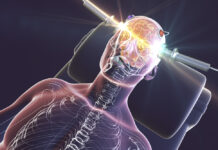In a recent piece for Psychology Today, clinical psychology professor John Read details WHO and UN’s recommendations against ECT for children, the potential harms for developing brains, and the need for more research:
“A joint document from the World Health Organisation and the United Nations recently concluded that electroconvulsive therapy (ECT) ‘is not recommended for children, and this should be prohibited through legislation.’
I have previously addressed the use of ECT on adults and the overuse of psychiatric medications on children. Here, I ask whether the use of electricity to cause convulsions as a psychiatric treatment is ever justified for children or adolescents. . . .
Amongst ECT’s many adverse effects is the long-term memory loss found in between 12 and 55 percent of patients. The American Psychiatric Association admits that ‘ECT can result in persistent or permanent memory loss.’ The ECT machine manufacturer, Somatics, includes ‘permanent brain damage’ in its list of risks from ECT. The recent joint W.H.O/U.N report states, ‘People being offered ECT should also be made aware of all its risks and potential short- and long-term harmful effects, such as memory loss and brain damage.’
The National Institute for Health and Care Excellence in the U.K. (NICE) informs us that ‘The risks associated with ECT may be enhanced in children and young people.’ . . .
The first of the two recent Chinese studies found that 76 of the 110 teenagers (69 percent) suffered ‘memory impairment’ after the ECT. The researchers describe this rate, however, as representing a ‘high’ level of safety, partly because it was only slightly higher than the 61 percent suffered by adults in the same study. They also claim that the impairment was ‘transient’ even though they made no follow-up assessments (and so could not possibly know that).
Similarly, the second study found that 189 of the 278 youngsters (68 percent) suffered memory problems as a result of the ECT. This was somehow interpreted as evidence that the level of adverse effects from ECT for children and adolescents is ‘acceptable’ and that ECT is ‘a safe choice.’ We disagreed.”

***
More from Around the Web
More from Mad in the Family















Why shouldn’t we just ban ECT completely? We are not even sure if it helps, but it damages the brain. How many doctors who perform ECT would opt to receive it themselves or have it performed on a loved one? I bet the number is pretty close to zero. I have yet to meet anyone who had ECT and who did not have significant brain problems as a result. It’s bad stuff.
Report comment
We are almost on a brink of a psych holdrunned World .This has already existed a very long time ago… And now it’s going back again .A book never published called “Electroshock, lobotomy, and, atomic bomb…” talks about it: a whole planet psychiatrically controlled where a false dissidency only exists to ensure a fightless opposition fully created by the oppression, the dominative Chemical Empire which decides who gets to power in the political loop and who quits, whose linked of course to the military industrial complex and to the IA corpofinancial banking clan, well gess, it’s probably our situation in a very soon future if the real opposition doesnt kill in the egg this projected society…
Report comment